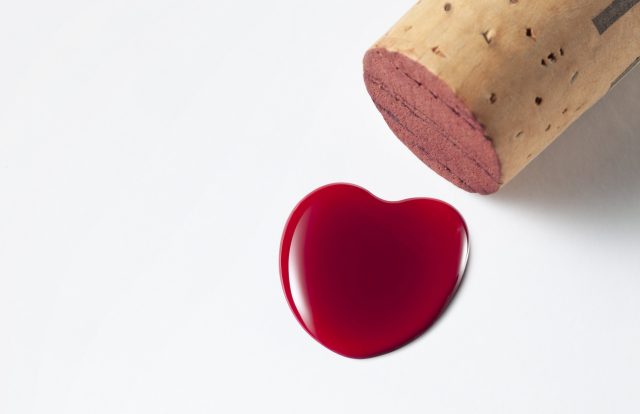Small glass of wine better for the heart than statins, study claims
A new study has shown how a small glass of wine can lower the risk of cardiovascular disease, providing yet more evidence of the benefits of moderate drinking.

The research, from the University of Barcelona in partnership with the Hospital Clínic Barcelona, is part of a broader study of how the Mediterranean diet brings health benefits.
For the investigation into the cardiovascular consequences of drinking of wine, 1,232 participants were assessed over a four-to-five year period, during which time there were reportedly 635 incidents of cardiovascular disease, including strokes and heart attacks.
To ascertain how much the participants were drinking, not only did they fill in questionnaires, but their urine was also tested for traces of tartaric acid – a compound that offers a clear indication of if wine has been recently consumed.
Research lead Professor Ramon Estruch said that by measuring levels of tartaric acid alongside the asking the participants, “a more accurate measurement of wine consumption” was enabled.
“We have found a much greater protective effect of wine than that observed in other studies,” explained Estruch. “A reduction in risk of 50% is much higher than can be achieved with some drugs, such as statins. This study demonstrates the importance of moderate wine consumption within a healthy dietary pattern, such as the Mediterranean diet. Until now, we believed that 20% of the effects of the Mediterranean diet could be attributed to moderate wine consumption; however, in light of these results, the effect may be even greater.”
Partner Content
It should be noted that the researchers were keen to stress that a “moderate” amount is half to one full glass of wine per day. For those drinking less than that amount, the reduction in risk of serious cardiovascular disease was only 38%, but those consuming more than a glass a day do risk erasing any potential health benefits altogether .
As for what it is in wine that may be responsible for reducing instances of cardiovascular disease, the study suggested that it might not be ethanol, as such health benefits are not necessarily found in other alcoholic drinks, but could instead be due to the presence of polyphenols (which are also believed to be beneficial to the brain), though this is “uncertain”.
Mediterranean lifestyle
“The participants in our study were older people at high risk of cardiovascular disease living in a Mediterranean country, so the results may not apply to other populations,” noted Estruch. “Another key question is at what age moderate wine consumption could be considered ‘acceptable’. Recent studies indicate that the protective effects of wine consumption are observed starting from the age of 35 to 40. It is also important to note that moderate consumption for women should always be half that of men, and it should be consumed with meals.”
Current UK National Health Service guidelines advise men and women to drink no more than 14 units a week – roughly equal to 6.6 recurring 175ml glasses of 12% ABV still wine consumed over seven days, or just under a glass a day, as the study suggested. The NHS does also note that excessive alcohol consumption can raise cholesterol and blood pressure levels, increasing the risk of cardiovascular disease.
While the Mediterranean is known to have a fairly high life expectancy, with many of the so-called ‘Blue Zones’ clustered in the region, the extent of the longevity of its population’s lifespans may have been exaggerated. Dr Saul Justin Newman won an Ig Nobel Prize in Demography this year for his research which revealed that clerical errors and pension fraud have skewed the data in Blue Zones, with many of those claiming to be centenarians falling short of the 100-year-old mark.
Related news
Early start signals healthy crop for Champagne 2025 harvest
Celebrity wines take the lead on health labels as Irish law stalls




